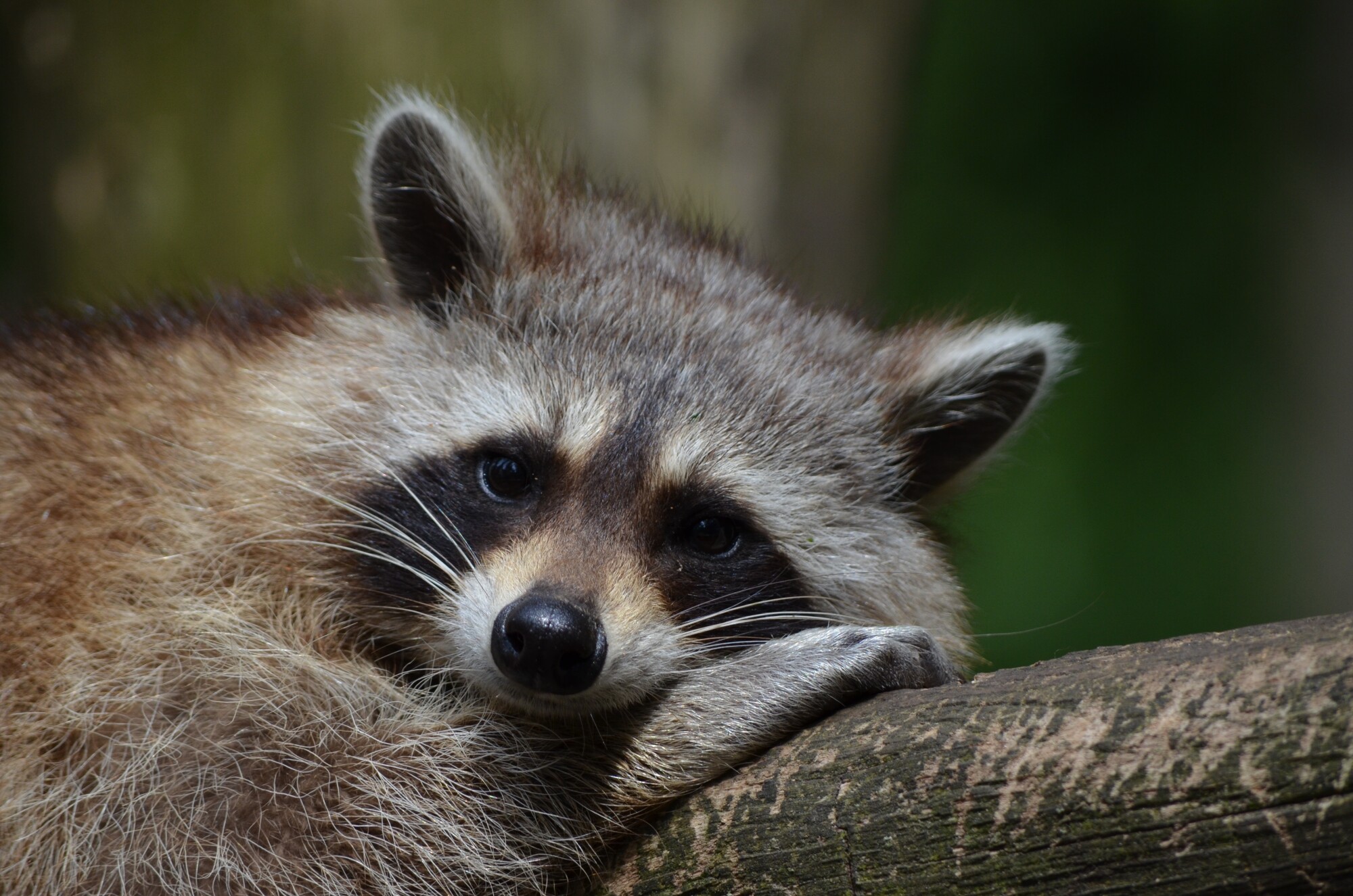Raccoons are the masked bandits of the animal kingdom that cause a lot of damage when they invade residential areas.
Near pools, they may contaminate the water with their feces or spread diseases like rabies. If they are near fruit trees, they may eat the fruit or damage the tree itself. The animals can also spread parasites and diseases to animals, especially in swampy areas.
In this article, we’ll look at some raccoon facts and how to go about identifying raccoon damage.
What Damage Do Raccoons Cause
Many types of raccoon damage can happen to your home or property. Raccoons are very destructive, and they can cause a lot of damage in a short amount of time.
Some of the most common types of damage raccoons cause include:
- Tearing up roofing and siding
- Raiding garbage cans
- Contaminating food supplies
- Tearing up lawns and digging holes
- Destroying gardens
If they gain access to your home, they will destroy insulation and tear up ductwork, resulting in thousands of dollars in damage.
They can also spread diseases to your family and pets via their urine and feces.
If you suspect raccoons are causing damage to your property, take measures immediately to prevent further damage and stay safe.
Raccoon Facts: How To Identify Types of Raccoon Damage
Early detection of raccoon damage allows you to stop them before they cause severe damage.
This raccoon damage guide will help identify the damage raccoons cause:
Raccoon Tracks
The first step in identifying a raccoon problem is inspecting their tracks. Raccoon tracks differ from the tracks of other animals because they have “thumbs.”
Their front paws are 1 to 1-1/2 inches wide, 2 to 3 inches long, with five toes. The hind feet are about 1 inch wide, 2-1/2 to 4 inches long.
Raccoons often follow straight lines when moving from one food source to another or from a den site to a food source.
Raccoon Droppings
Another way of identifying types of raccoon damage is by looking at their droppings. Raccoon droppings are larger than other animal droppings and often contain food particles.
Raccoon droppings are ½-inch to one-inch long and sometimes contain shells from consumed insects.
Damage to the Home
Raccoon damage inside the home can include torn insulation, chewed wires, and damaged ceilings.
Raccoon damage outside the home includes damaged vegetation, overturned garbage cans, and torn shingles. Other types of raccoon damage include depressions in lawns from collecting rocks and tearing apart wood for nesting materials.
Raccoons can be a nuisance when they cause significant property damage to your home or business.
Due to their potential for disease transmission and aggression toward people or pets, raccoon removal should be left to professionals.
Deal With Raccoon Damage Today
Raccoons can be a nuisance, but they are also fascinating creatures. Raccoon facts such as their dexterity and intelligence should help you better understand these animals if you encounter them on your property. They’re not afraid of humans and they’re pretty clever.
If you have a raccoon problem, we can help you get rid of it quickly and efficiently.
Contact us today for a free quote on our raccoon service, and we’ll put an end to your raccoon problems.



Comments are closed